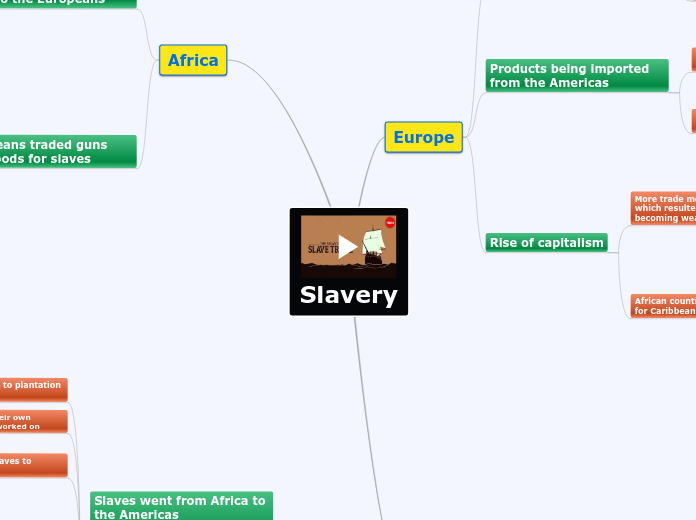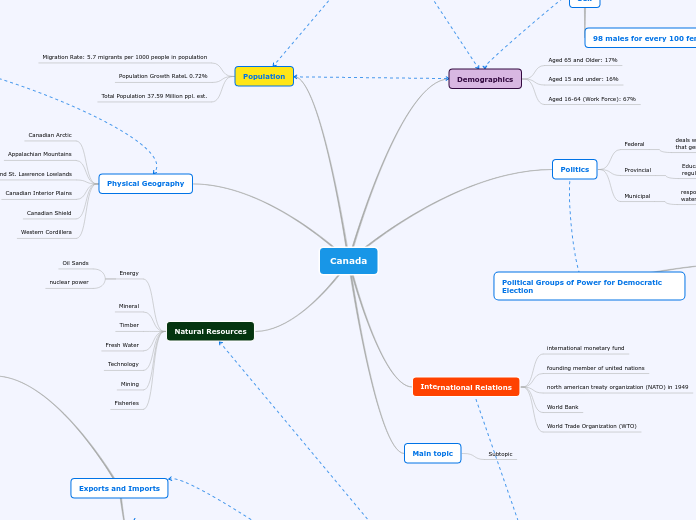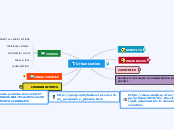Slavery
Americas
Slaves helped develop the Americas
Many people residing in the Caribbean today are descendants of slaves
The effect of slavery has impacted the geography and populations of the world
Even though slavery was abolished, a majority of African Americans occupy low income jobs. Many of them live in poverty
Cleared land and forests
Built roads
Transportation made easier
More plantations could be built
More money could be made
Changed the landscape
Built many buildings
Slave owners didn't need to pay for labour costs
Money could be spent elsewhere
More plantations
European imports
More slaves
Slaves went from Africa to the Americas
Exports went from the Americas to Europe
Boom in economy
Constant flow of slaves coming in and exports going out
12 million Africans were taken from their homes
Caribbean plantation owners became wealthy
Bought more plantations and assets
African slave traders became wealthy
Small minority of West Africans were rich
Corruption and pillaging
European slave traders became wealthy
Bought properties and plantations in the caribbean
More money circulating in Europe
Wealthy Europeans began buying properties in the Americas
In a constant need for slaves to produce more exports
Slaves were treated as sub-human
Just another means of making money
Plantation owners became extremely wealthy
Some slave traders had their own plantations which slaves worked on
Slave traders sold slaves to plantation owners, usually in bulk
Africa
Europeans traded guns and goods for slaves
More warfare
Entire states and populations were wiped out
Two thirds of slaves were men
Gender disbalance created in West Africa
Long lasting effects of slavery are still seen today
Corrupt governments
Extreme poverty
Created a larger divide between the poor and the rich
Asante and Dahomey became very wealthy states
Africans were captured other Africans who sold them to the Europeans
Traders made slaves march to the coast to be picked up by European ships
Slaves had to walk for weeks and sometimes even months
Slaves were all chained to each other and forced to march
Traders had sophisticated ways of rounding up Africans to be traded
Sold as punishment
Captired in battle
Kidnapped
Europe
Rise of capitalism
African countires were eagar to trade for Caribbean exports
European traders were trading material objects for a human life
There was more to be gained from a slave than from material objects because the slave could produce more material objetcs
Europeans traded Caribbean exports for slaves who went to go make more Caribbean exports
More trade meant a booming economy which resulted in more people becoming wealthy
Wealthy individuals reinvested money to create businesses which stimulated economic growth
Industrial revolution
Technological advancements
Urbanization
Industrialization
Products being imported from the Americas
More trade opportunities for individuals involved in the slave trade
The rich get richer
Europeans had a greater variety of imported products
American cotton
Tropical woods
Virginian tabaco
Caribbean sugar
Slave owners became extremely wealthy
Slave owners were able to afford large plantations
Profits and products made from the plantation went almost entirely to the owner
Slaves that were bought were taken to the Americas to perfrom hard labour
Products produced by slaves were taken on board ships which returned to Europe to be sold









